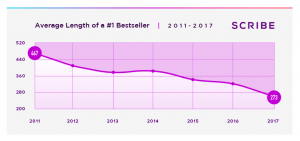 It’s a catchy title – “Flop Masterpiece” – and enough to make you want to see it. “An ambitious, budget-busting adventure-thriller set in a South American oil refinery town and its surrounding mountainous jungle, Sorcerer was intended as a loose remake of Henri-Georges Cluozot’s undisputed 1951 classic Wages of Fear. It was also well-poised to be a gargantuan flop when it was released the same summer weekend as George Lucas’ much more straightforward blockbuster Star Wars.” [source: BBC]. So, until Star Wars came along and took the limelight, Sorcerer was a masterpiece? I love the oxymoron, but I guess that, at the end of a long day, I am NOT inclined to want to see a “flop masterpiece.”
It’s a catchy title – “Flop Masterpiece” – and enough to make you want to see it. “An ambitious, budget-busting adventure-thriller set in a South American oil refinery town and its surrounding mountainous jungle, Sorcerer was intended as a loose remake of Henri-Georges Cluozot’s undisputed 1951 classic Wages of Fear. It was also well-poised to be a gargantuan flop when it was released the same summer weekend as George Lucas’ much more straightforward blockbuster Star Wars.” [source: BBC]. So, until Star Wars came along and took the limelight, Sorcerer was a masterpiece? I love the oxymoron, but I guess that, at the end of a long day, I am NOT inclined to want to see a “flop masterpiece.”
Which raises the question, “how do you know if your book is going to be a best-seller?” And, as an author, should I care? The key here, is to touch a nerve—a major social nerve; a nerve shared by millions. And that, my dear reader, is the nerve I hope to touch ever so lightly in my new thriller, or perhaps not so lightly. A masterpiece will be viewed as artistic and enduring; engaging across generations and genres. A masterpiece is never written by a young writer; it emerges from decades of experience and discovery, and years of refined editing? A masterpiece may be forgiven for having a simple plot, stretched to breaking point. Hemingway writes about an old man catching a big fish, but it is more than a well-written fishing story. The Old Man and the Sea goes beyond the sea, which helps its immortality. To quote a comment, “(The Old Man and the Sea) succinctly presents a challenging question while exploring several themes that provide insight to man’s role, suffering without complaint, and humanity’s place in the world.” Perhaps exploring the human condition is what elevates writing above the ordinary and helps it soar into the heights.

